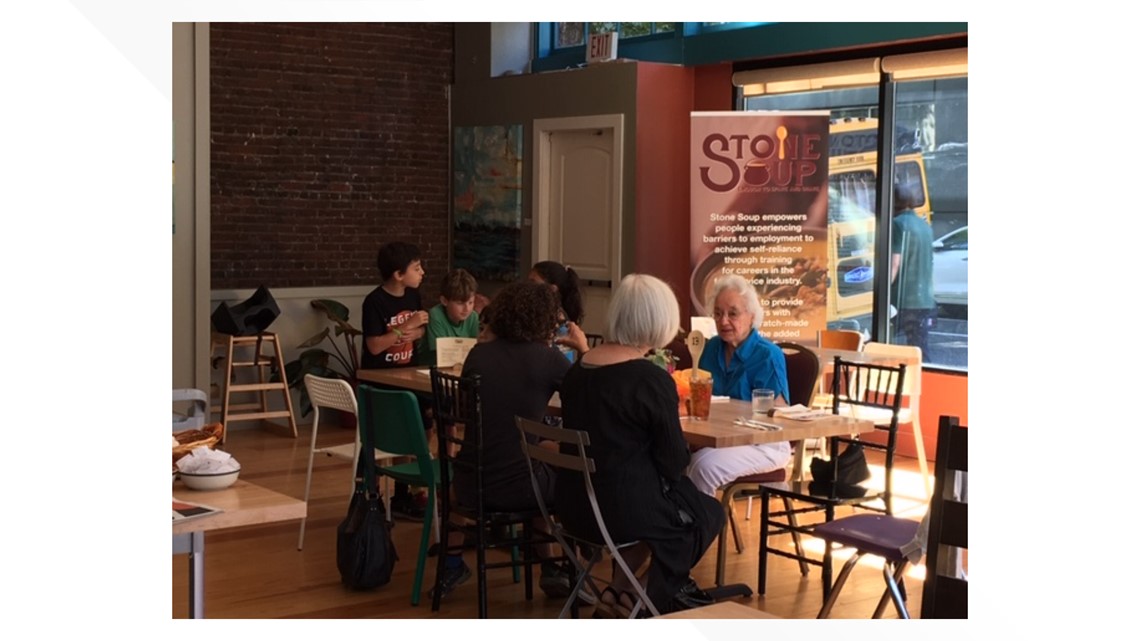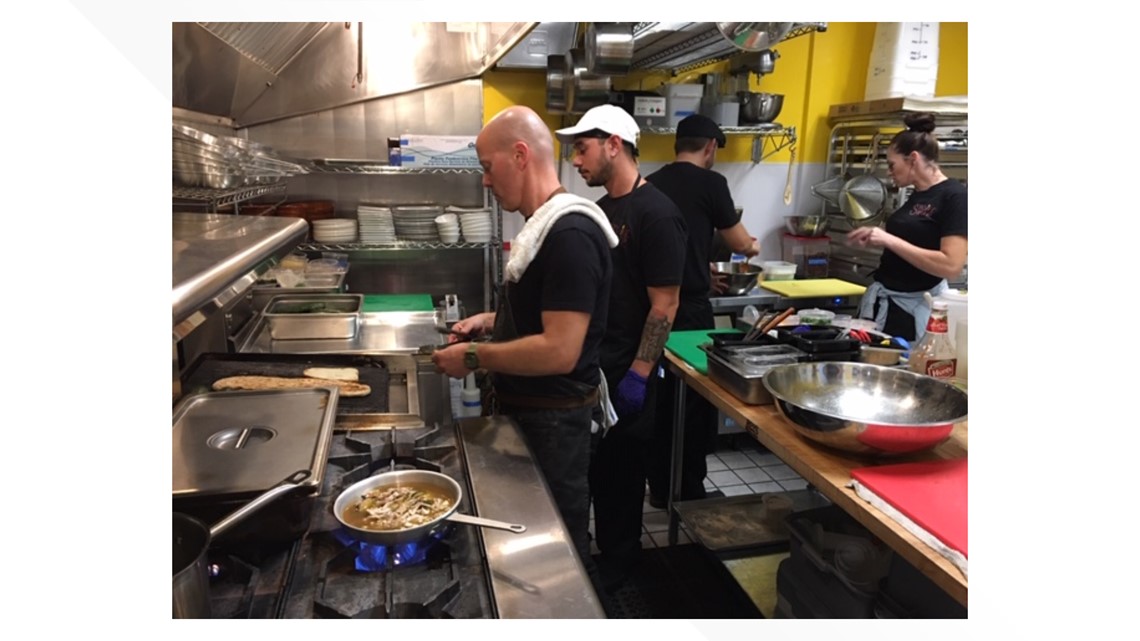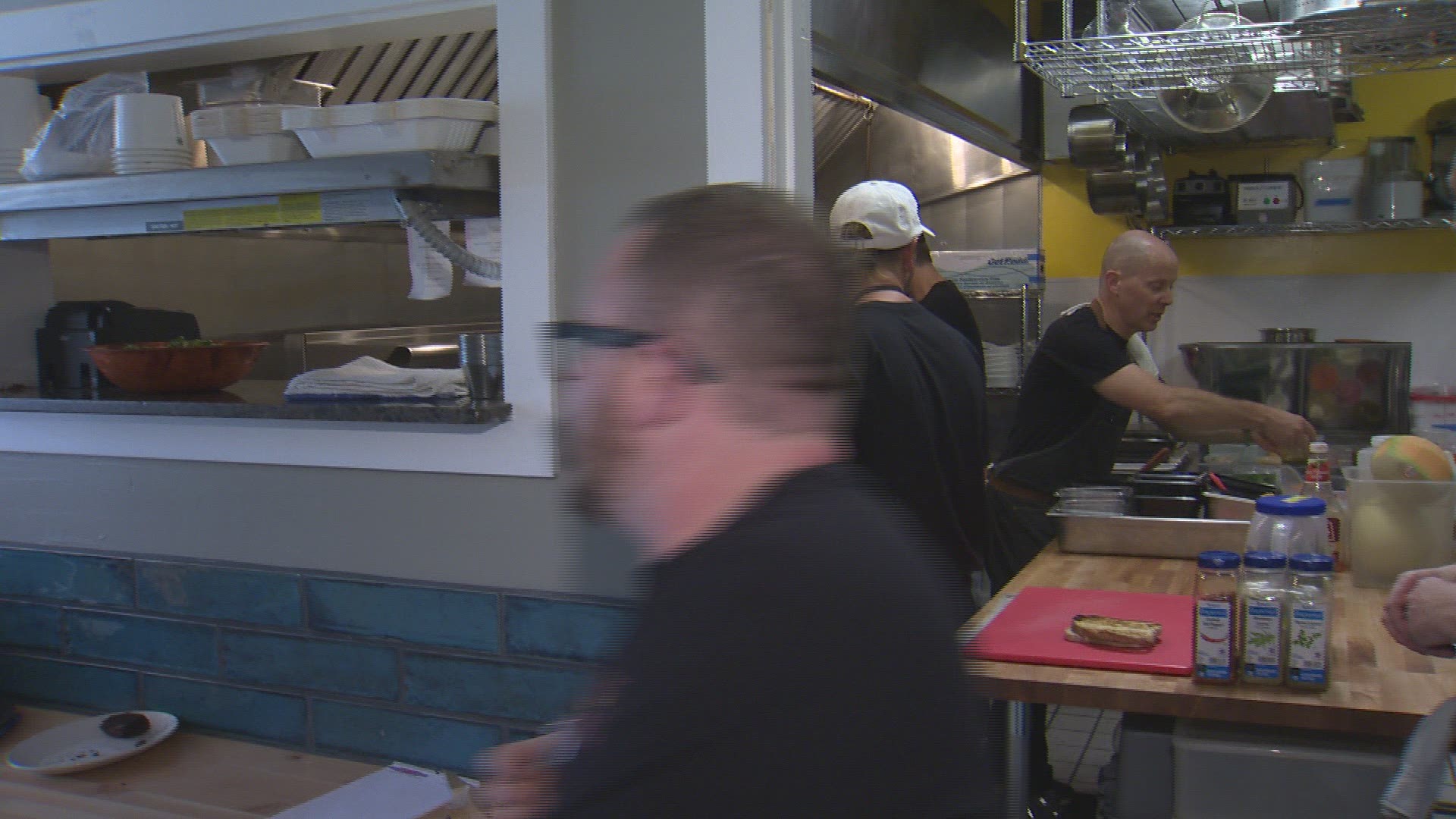PORTLAND, Oregon — Like many of us, Lyndsi Henry's weekday mornings are hectic.
She's dodging strawberries tossed from her baby son in his high-chair, she's prodding her 10-year-old to double-check his homework, and she's making sure her 16-year-old daughter has her lunch money for school, all the while shouting out the time on the clock and reassessing when she needs to leave the house to get everyone where they need to be.
But for her, just having all three kids there at the same time in her one-bedroom, subsidized Gresham apartment is a blessing.
It's been a rocky road for the 36-year-old, but things are looking up. She just got custody back of her 18-month-old son Ryker, hoping she won't have to deal with home visits by the Dept. of Human Services anymore. She's been approved to move into a new, larger, two-bedroom apartment with help from social services. And if all goes well, she's on track to get a new, full-time job in a few months.
Fingers crossed.
Lyndsi is part of a brand new job-training program put on by a nonprofit restaurant called Stone Soup in Old Town. In the former Gilt Club space on Northwest Broadway at Couch Street, Stone Soup serves soup, salads and sandwiches for lunch, along with Thursday and Friday happy hour and business lunch catering services.


A lunch counter with a mission
Stone Soup opened in July and started its unique job training program in August. It's the dream of the husband-and-wife team of Craig and Ronit Gerard. He's got the restaurant industry background and she's got the years of service work experience, through the Peace Corps and other nonprofits.
Outside the restaurant's expansive windows is an ironic view of Portland's changing landscape.
"We are a couple blocks away from The Pearl, where people don't mind spending $100 on a plate of food," Craig pointed out. "And we're right across the street or around the corner from the social service agencies that are providing the help to the city's most vulnerable populations."
He employs a full-time chef who cooks and prepares the majority of the restaurant's food. Also on staff is a chef instructor who teaches the group all about the kitchen, how to chop vegetables, the etiquette ("yes, chef!") and the lingo for appliances and cooking techniques.
"Our job-training program is designed for people who are at risk of homelessness. That could mean a lot of different things," Craig said. "It could mean they're getting rental assistance in their current place, it could mean they're in transitional housing or a shelter, or it could mean they have gotten their own place and are looking to start a new career.
"Our program participants are in stable housing so they can come to the program ready to work and they're going through a 12-week training program."


In those 12 weeks, from August through November, this inaugural group of three, which started as four, learns "front of house" restaurant skills like serving, hosting and bartending. And the "back of house" skills like food prep and cooking.
Then they take life skills classes along the way, like household budgeting, conflict resolution and equity training. Starting in the fifth week, they get paid hourly.
The participants are chosen through an application process and nominations from social service agencies that can identify good candidates with the potential to succeed.
Lyndsi's story
Lyndsi Henry, with her bright smile, energy, and food service background, is one of those candidates.
She grew up in Southeast Portland on a strawberry and raspberry farm. In 1993, she was a Junior Rose Festival Princess and she graduated from David Douglas High School. Lyndsi got good grades, and was accepted to the University of Oregon. But before she could go, she got pregnant at 18.
Things only got harder from there. Lyndsi's father died unexpectedly during her pregnancy. Following a surgery before her second child was born, she became hooked on pain pills. That addiction led to heroin, then burglary and theft convictions to get money for more heroin, which led to jail time, detox and drug treatment, over and over again.
"It's like nothing else matters," she said. "Heroin. Number one thing.That was always my number one thing above anything else."
Lyndsi is tough. She went to school, earning an associate's degree as a certified medical assistant, meanwhile racking up $65,000 in student loans. And then with felony convictions on her record, she ran into trouble finding a job.
Now, she's taking it day by day, living clean for her three kids. She qualifies for rental assistance for her Gresham apartment and state-funded day care for her baby son. So, she can come to Stone Soup every weekday from 9 a.m. to 3 p.m. to learn and work. On the weekends, she has a part-time job serving bubble tea and drinks at a Gresham food cart pod.
"I need support to be able to maintain my home and the bills that go along with that. Am I homeless? No. Do I have a home? Yes," she said. "If I don't have some help, it could crumble very quickly. I don't feel comfortable sustaining my own home right now."
There are so many restaurants in Portland and there are nowhere near enough people to work in them. Experienced industry staffers can almost have the pick of the litter because they're so in-demand. Restaurants are supporting the Stone Soup cause wholeheartedly, even donating dining chairs to the nonprofit with plaques on the back showing where they came from. Every seat you sit on in Stone Soup looks and feels different, because each one came from a different Portland eatery.
If Lyndsi and the remaining two participants finish the 12-week program, Stone Soup will place them each in the restaurant industry job that best suits them. It's about teaching lifelong skills so they can sustain themselves.
"I'm a simple girl," Lyndsi said. "I just want to be content, happy, and have direction and purpose."
If all goes well, Lyndsi and the other two participants, Sean and John, will graduate at the end of next month, then get jobs.
And we'll be right there with them when they find out. KGW be following them through the rest of their journey, and the potential job that comes after.
Then, a new group of people will be chosen and the 12 weeks will start over for them.

